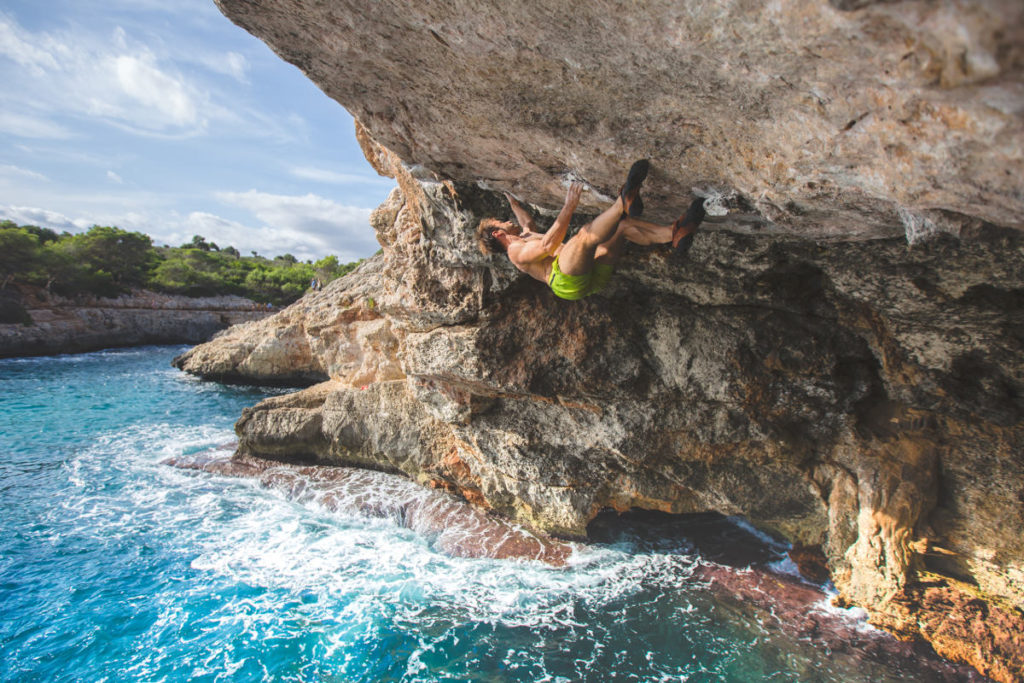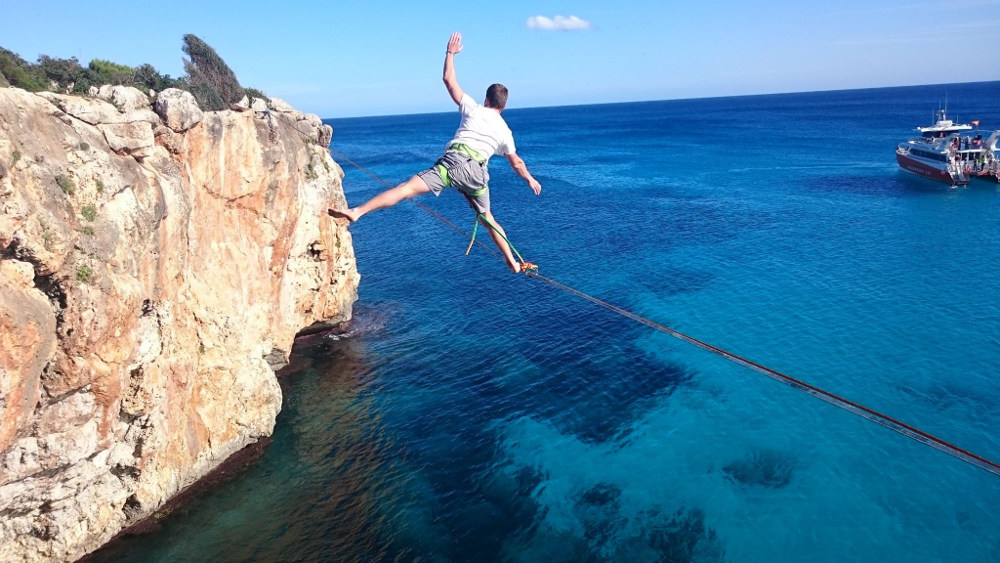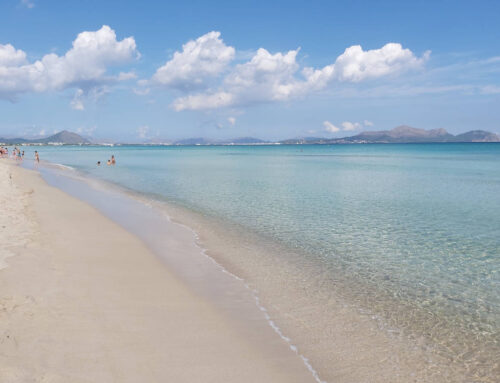Since the renowned Mallorcan climber Miquel Riera popularized the practice of psicobloc (deep-water soloing) in Mallorca in the seventies, this modality of climbing without rope, without harness and on cliffs has been gaining followers year after year and “today it is stable within the success”, according to Eneko Pou, a free climbing athlete.
The island’s climate, the beauty of its landscapes and competitive prices are some of the reasons why climbers from all over the world, mainly from central and northern Europe and the United States, choose Mallorca to practice this sport. Furthermore, “the quality of the rock is exceptional. It is a very frank orange limestone, which does not break and has a lot of adherence…”, adds Pou.

Eneko Pou in Cala Varques. Photo: Luis Rizo.
Where to practice psicobloc in Mallorca
In Cala Varques, Portocolom or Cala Serena there are some of the best cliffs to enjoy the psicobloc. The southeast of the island is the best area because “in general, the cliffs are around 15-20 meters, which is the ideal height”, says Eneko Pou.
The practice of this sport requires being strong at all levels: “Any road demands a lot from you physically and psychologically because when you reach a few meters above the water, nobody wants to fall. In general, it’s very scary”, says Pou. It is also recommended to know how to swim fluently to “be able to get out of the water without risking life in case of bad seas” and “to always be accompanied by more people”.
For those who do not meet these conditions or have not overcome their fear of heights there is another modality, the aquabloc, which is practiced horizontally, a few meters from the water. In the aquabloc “everyone has a place” and you can experience the same sensations of freedom that the psicobloc offers.
Slackline: balances on the rope

Photo: Balear Slacklife.
Halfway between climbing and circus games is the slackline, a balancing sport only suitable for the most daring and skilled that has gained strength after lockdown because it is performed outdoors. Those who practice it have to walk on a flat nylon or polyester strap of about 50 millimeters that is attached to two anchor points.
In Mallorca, the Balearic Slacklife is one of the groups of sportsmen who are fond of this discipline. They often travel to Cala Millor, next to the CM Castell de Mar hotel, to perform one of the most common forms of slackline: the trickline, which combines jumps and dexterity tricks on a taut rope a few meters above the ground.
Text: Virginia Servera.







Leave A Comment